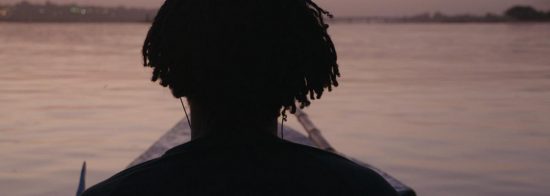LFF 2020 Review: African Apocalypse – “The documentary is a timely one”
The novel ‘Heart of Darkness’ by Joseph Conrad has had a huge impact in art, media and politics. While most may be most accustomed to the film adaptation ‘Apocalypse Now’ which transports the novel from the colonial conquests of Africa to the Vietnam War, this documentary goes back to the source. Following the real-life French Captain Paul Voulet and the atrocities he committed in Niger just as the book itself was being published in a macabre life-imitating-art parallel.
Our guide through Niger is British-Nigerian poet and activist Femi Nylander. Femi starts the documentary in the UK, looking at the historical legacy of conquest in Africa and the slave trade before we look at the book ‘Heart of Darkness’. In a search for a real-life Colonel Kurtz he finds a contemporary in Paul Voulet and decides to follow his bloody campaign and see if his damage has lasted generations.
Once the documentary sets off in Africa, the evidence is damning. Voulet’s campaign of terror is compared to Boko Haram, but nothing is as vicious or as ferocious as what Voulet dealt, burning whole villages and massacring thousands in his wake as an ‘enlightened European’.
Much like ‘Apocalypse Now’ the documentary is uncomfortable viewing. Archived photography and film is used to show what the situation was like. Mutilations, hangings and even an audio recording from one of the oldest survivors are used. However, it is Femi’s reading of Voulet’s letters and the letters of Captain Klobb (who was sent to stop him) which link to the film, the book and the first-hand account from the French themselves. Though there is a rather odd nod to the films infamous buffalo scene.
As Femi travels from village to village he’s struck by how eager the locals are to tell their story. Paul Voulet may have been a new name for many viewers, but it is not unknown to the locals. Remnants of his handiwork are everywhere, from the lost relatives, destroyed buildings and infrastructure, so little has been rebuilt since.
The documentary is a timely one. As 2020 has also been a year of acknowledging historical and modern racism, African Apocalypse opens eyes on the continuing impact of colonial powers and the incomplete picture that is presented. In one of the more light-hearted moments, the locals in Niger openly laugh at a monument to Captain Klobb, mocking the fact that no such monument or acknowledgement from France exists for the countless who died.
The documentary is a fascinating combination of history and film. When Joseph Conrad wrote his novel he would not have known what Paul Voulet was doing nor of the continued legacy of his novel. Femi himself forms a unique perspective to the documentary, as the only westerner around to hear these stories while at the same time embodying his African heritage. This complex perspective is informative but it doesn’t detract from the stories of those who still live with the repercussions of colonialist rule.










